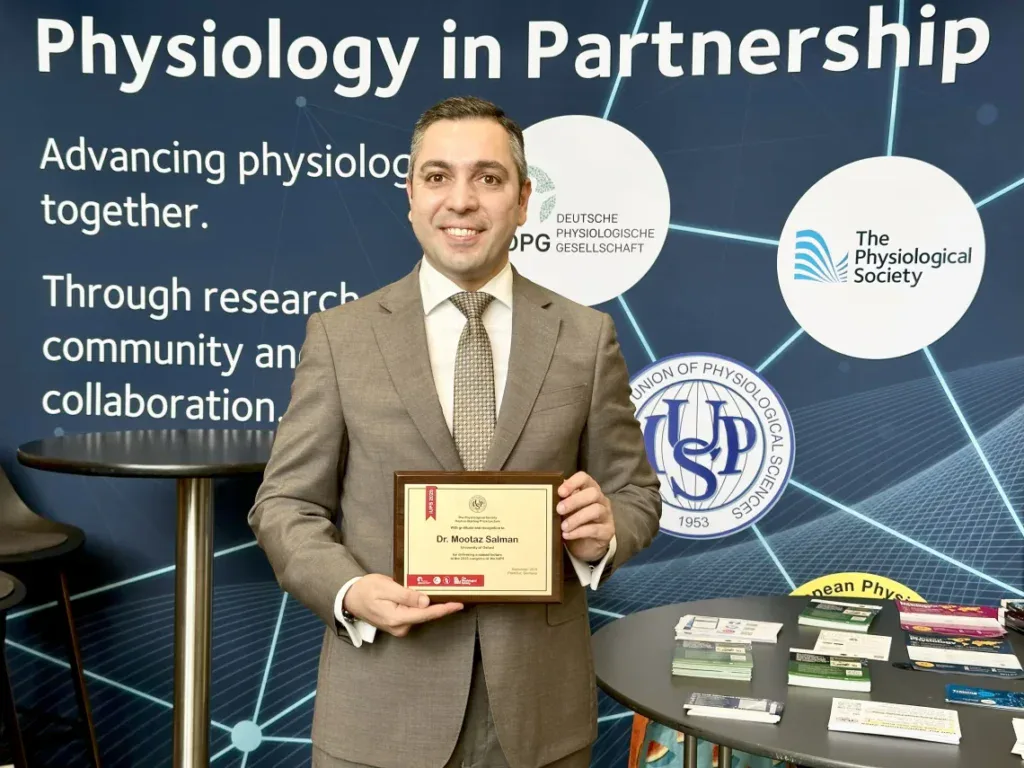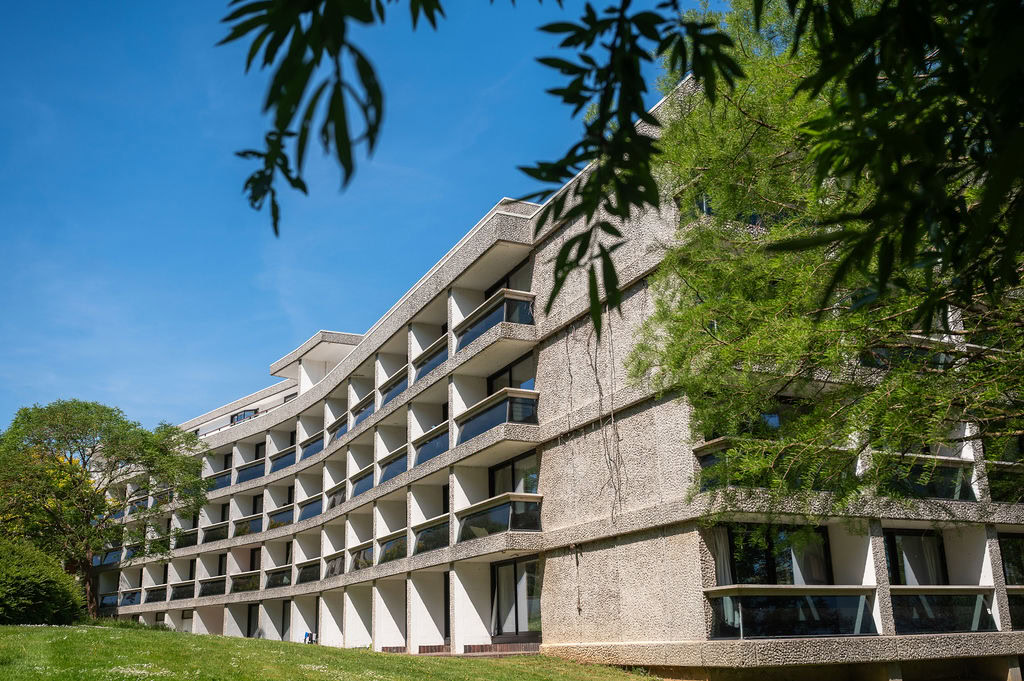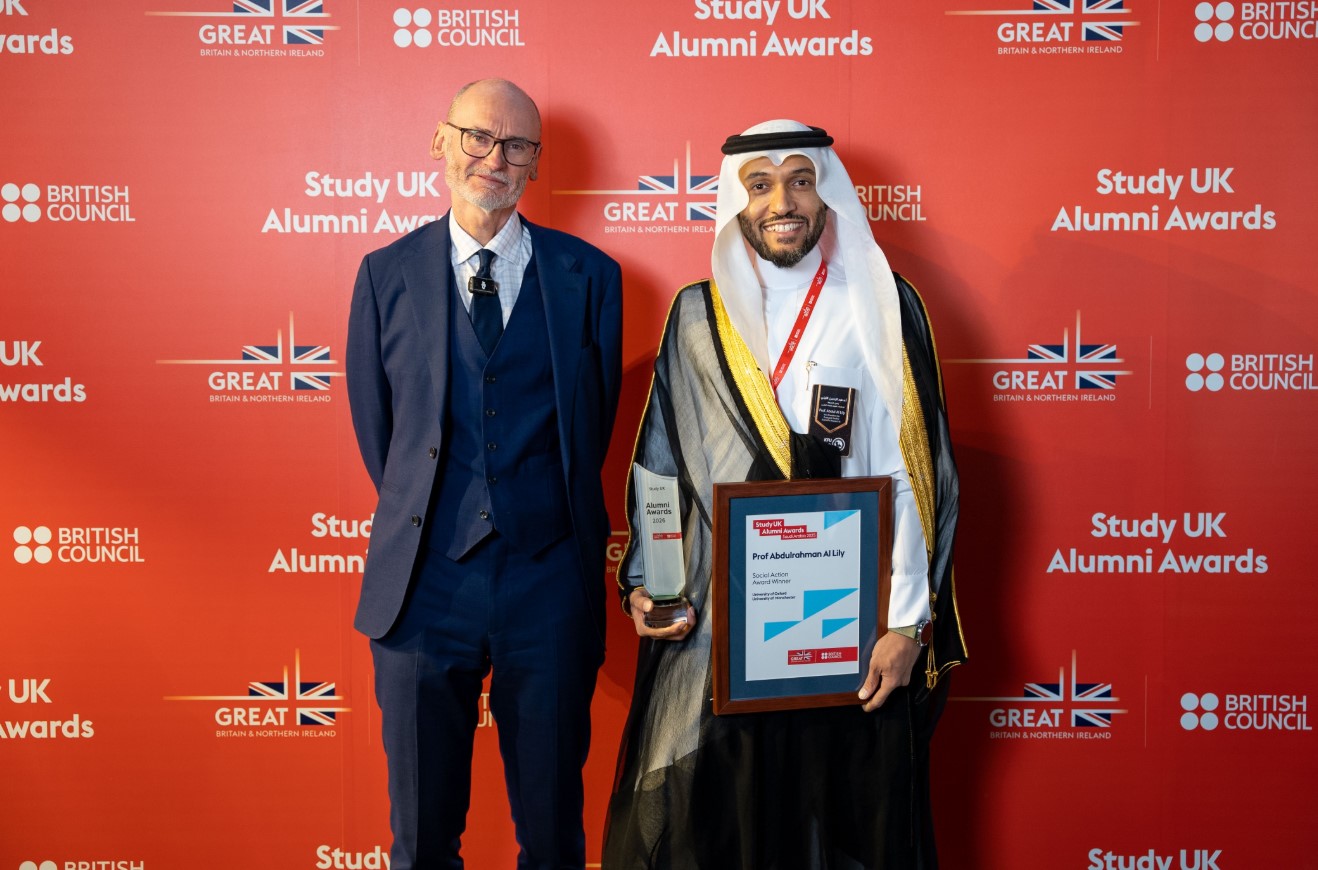Research Fellow Dr Mootaz Salman awarded The Physiological Society’s Bayliss-Starling Prize Lecture 2025

We are delighted to announce that Dr Mootaz Salman, Wolfson Research Fellow and Group Leader in the Department of Physiology, Anatomy and Genetics (DPAG), has been awarded the Bayliss-Starling Prize Lecture 2025 by The Physiological Society. This prestigious mid-career prize lecture recognises outstanding contributions to physiology and was delivered at the IUPS 2025 meeting in Frankfurt, Germany, 11–14 September 2025. He will also deliver the Bayliss-Starling Lecture at the Society’s annual meeting.
The Bayliss-Starling Prize Lecture for Mid-Career Physiologists is an annual lecture was established in 1960 as a joint memorial to Bayliss and Starling. It is awarded to a mid-career physiologist to celebrate a discreet package of work that has made a significant impact on physiological understanding.
Dr Salman is Principal Investigator at the BHF UK Dementia Research Institute’s Centre for Vascular Dementia Research (BHF UK DRI CVDR) and the Oxford Centre for Research Excellence (CRE), as well as Group Leader at the Kavli Institute for Nanoscience Discovery. His research focuses on developing human iPSC-derived models, including blood brain barrier-on-a-chip and brain organoid systems, to investigate neurovascular function, inflammation, and mechanisms of neurodegenerative disease.
The award highlights Dr Salman’s pioneering work at the interface of neuroscience, physiology, and bioengineering, and his commitment to advancing translational approaches that bridge fundamental discovery with therapeutic innovation.
Upon receiving the award, Dr Salman said:
“I was truly honoured to deliver the Bayliss-Starling Prize Lecture at IUPS in Frankfurt. It was a wonderful experience to share our work on the blood-brain barrier with an inspiring international community, and to celebrate this recognition made possible by the collaborative and supportive environments at DPAG, the Kavli Institute, Oxford CRE, and the BHF UK DRI CVDR.”

